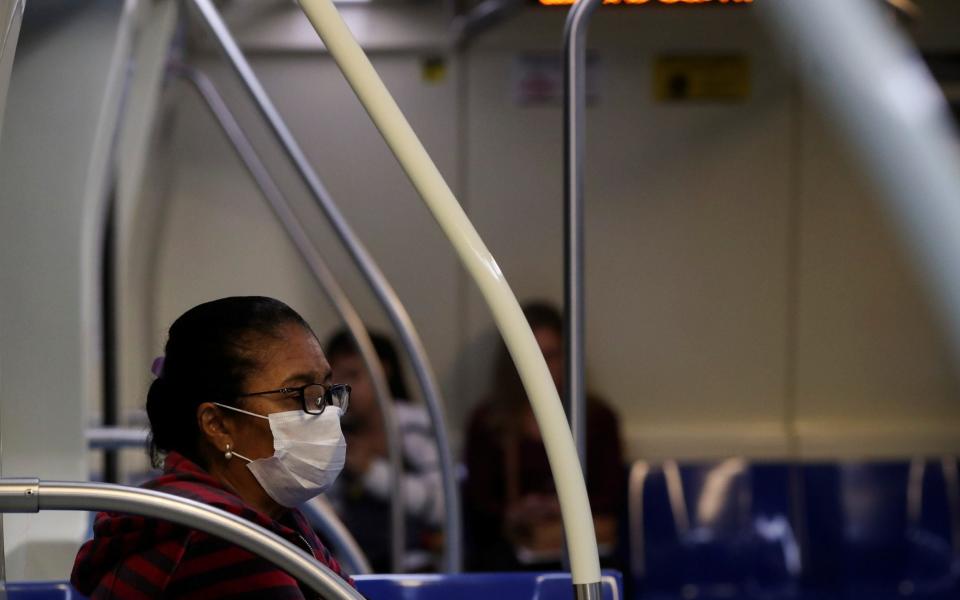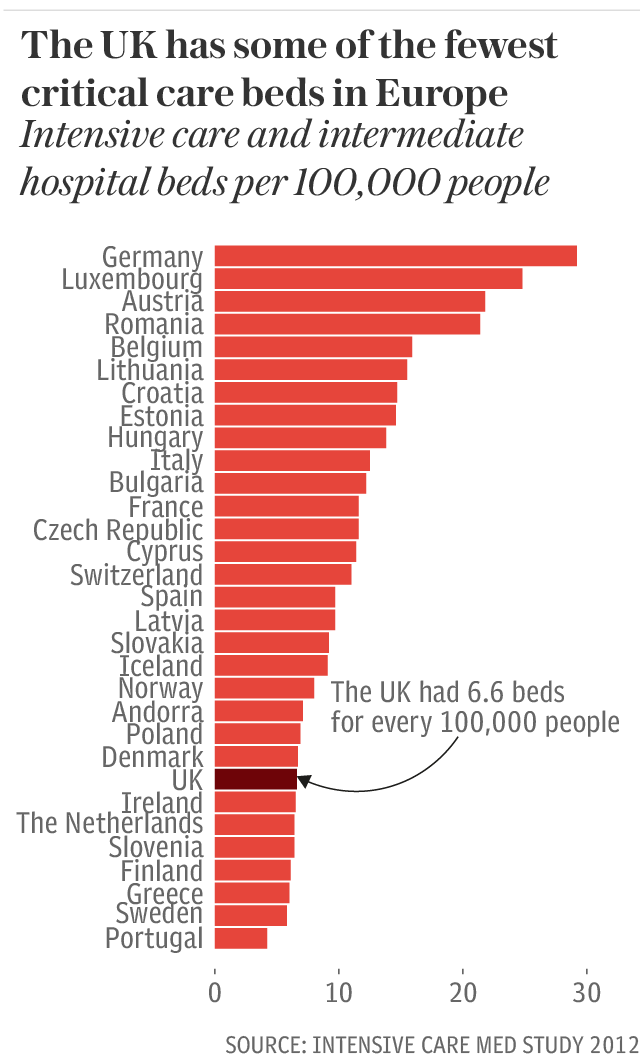Coronavirus: Don't worry about the politicians, the experts are in charge

You know things are getting serious when Donald Trump appears live on television for almost an hour without sparking outrage or mayhem.
Flanked by experts, his advice on the coronavirus on Wednesday was, as ever, flowery but in this case balanced and to the point: "This is a much different problem to Ebola. [With] ebola you disintegrated. That was it. This one is different. Much different. This is a flu. This is like a flu...so it's a much different situation…wash your hands”
Since early January when the first cases of the virus appeared in Wuhan anxiety has been building across the world. For most of us it started as nothing more than a passing interest, something alien that sprung from an exotic “wet market” far away. But we live in a connected world and the news this week that the (sometimes) deadly coronavirus had colonised a chunk of northern Italy, sparked something nearing panic.
Parents bombarded headteachers with worried emails prompting schools to close. Hundreds of expensive holidays were cancelled. And then on Thursday, an entire trading floor in Canary Wharf was closed with all 300 staff sent home because one of them returned from a business trip with a cold. So much for the “masters of the universe”.
Panic is never a good option but nor is that very British maxim “keep calm and carry on”. The phrase has a dark history that dates back to the 1918 Spanish Flu pandemic and almost certainly cost many lives.
No, the trick to surviving a pandemic (or at least improving your odds) is to get properly briefed on the facts, alter your behaviours accordingly and push on with your life. Most importantly, keep things in perspective and look out for others. The thing that is statistically most likely to finish us off early is not a renegade virus but heart disease.
We should also take confidence from the government’s approach. This is not a party political point. Genuine experts from across the world - scientists, doctors, epidemiologists, to mention just a few - have been planning for exactly this sort of outbreak for decades.
They have learned the lessons (positive and negative) from many previous epidemics and have hugely sophisticated technology, datasets and working methods to aid them. They are all guided ultimately by the World Health Organization (WHO), a very capable division of the United Nations which saves many millions of lives a year.
I was working at the Department of Health in 2009 when H1N1 or “swine flu” broke out and can reassure you politicians hardly got a look in. They rightly step back from the fray in moments like this and allow their experts and the scientific evidence to guide them. In so far as they are allowed out at all it is to disseminate evidence-based messages or to undo unhelpful policy decisions they may have made previously.
On Wednesday, for example, Mr Trump effectively reversed the swingeing nine percent funding cuts he had made to the US Centers for Disease Control (CDC) and accepted he would be rehiring many of the experts he had fired. Much the same will be happening in Whitehall at the moment as regards the NHS as no politician wants to face what has been dubbed a “Chernobyl moment” where it becomes apparent that scrimping has sparked national disaster.
So what is the big strategy, the policy of “contain, delay, research and mitigate” that the health secretary Matt Hancock outlined in the commons this week?
In simple terms it is to “flatten the curve” of the outbreak if (as is probable but not certain) it hits Britain. This means taking measures that prevent the virus running through the population at speed and unhindered so that the impact is spread over time and the NHS not overwhelmed.
Encouraging frequent hand washing, putting in place local quarantines as we have seen in Italy, closing schools and cancelling public events are among a long series of “mitigation” measures that can work if deployed at the right time and in the right circumstances:
Why is flattening the curve of an outbreak so important? Well, it can dramatically reduce the fatality rate of a disease - something that is rarely fixed.
For example, the WHO calculates the mortality rate for coronavirus is three percent in Wuhan but as low as 0.7 per cent in other Chinese provinces.
At population level, these seemingly small differences pile up. The “reasonable worst case scenario” used by the UK government for pandemic planning assumes a 2.5 per cent mortality rate and 750,000 excess deaths. If the fatality rate can be kept to 0.7 per cent or less, which is entirely plausible, hundreds of thousands of lives would be saved.
In an expert opinion on coronavirus published in the Lancet last week, the authors suggest the variability in the death rate in China can be explained by differences in local health care capacity.
“The rapid escalation in the number of infections around the epicentre of the outbreak… resulted in an insufficiency of health-care resources… negatively affecting patient outcomes”, they said. In simple terms, Wuhan ran out of doctors and beds.
A shortage of hospital beds in the UK is also likely to be our Achilles heel. The NHS has fewer critical care beds by some considerable margin than many other comparable countries - about seven per 100,000 people, compared to 29 in Germany, for example.

This is just one of the reasons why the government’s strategy of “contain, delay, research and mitigate” is so important. If a sudden spike in case numbers and a rush on critical care beds can be avoided, we will avoid the higher death rates recorded in Wuhan.
At a personal level, there is another key statistic to consider: even in a worst case scenario, the government only expects 60% of the population to pick up the virus. Who will be the 40 per cent - the 25 or so million - who avoid it?
Well, there are no guarantees but it is a petty good bet that there will be a disproportionately high number of frequent hand washers among them.
Protect yourself and your family by learning more about Global Health Security. And sign up to our weekly newsletter here.

